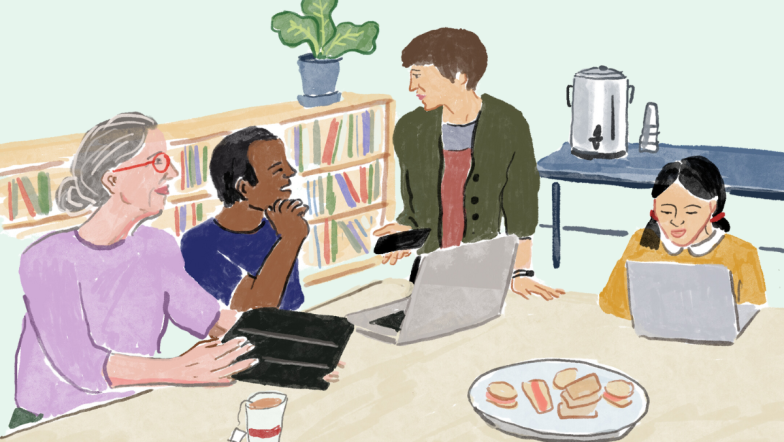We need better safeguards for digital witnessing during COVID-19
13 May 2020
On 22 April 2020, new regulations to the Electronic Transactions Act 2000 (NSW) allowed witnessing of legal documents via video conference. Documents include Powers of Attorney, Enduring Guardianship Appointments and wills that our Seniors Law service use to protect people at risk of elder abuse.
We commend the New South Wales government’s leadership on these reforms and believe other states should replicate them so more people can access legal protections and tools.
Reforms can be strengthened by effective safeguards
In a recent position paper, we explain how digital witnessing can only be effective if safeguards are provided to protect our older clients from signing documents unwillingly. We made recommendation that included certification by the solicitor that they are “not aware of anything that causes me to believe that the principal did not freely and voluntarily sign the document”.
Governments must introduce these reforms with strong safeguards to ensure older Australians are not subject to duress.
Technology can help increase access to justice
We were the first legal services organisation that piloted providing legal services via Telehealth. Telehealth is a secure video conference platform that is widely used in the health sector and ensures client confidentiality. We’ve been using Telehealth whenever possible to take instructions and witness documents when we couldn’t meet with clients face-to-face during the COVID-19 outbreak.
In comparison to a phone call, videoconferencing allows us to better confirm our clients’ capacity to give instructions and understand our advice. Videoconferencing can also help us identify whether a client is under duress.
Our Telehealth work demonstrates that videoconferencing through platforms such as Telehealth increases access to justice. COVID-19 has highlighted the urgent need for video witnessing, but we can make permanent these changes for a broad range of communities. Particularly older clients with mobility needs and who live in rural, regional and remote communities.
We need to roll out digital witnessing reforms nationally
We must view the six-month period that these regulations are in force in NSW with deep consideration. For the first time, we are trialing witnessing the execution of legal documents via videoconferencing. If this trial is effective and provides adequate protection to those executing the documents, video conferencing should be permitted by legislation permanently.
We will work with key stakeholders to replicate these laws nationally and ensure lawyers have best-practice guidelines for the new regulations. These guidelines should help lawyers ensure their client has capacity when signing documents, and is not under duress.
When safeguards are in place, digital witnessing is a great way to prevent elder abuse in times of crisis. Rolling out these reforms and safeguards nationally will reduce risk of elder abuse for our clients.


